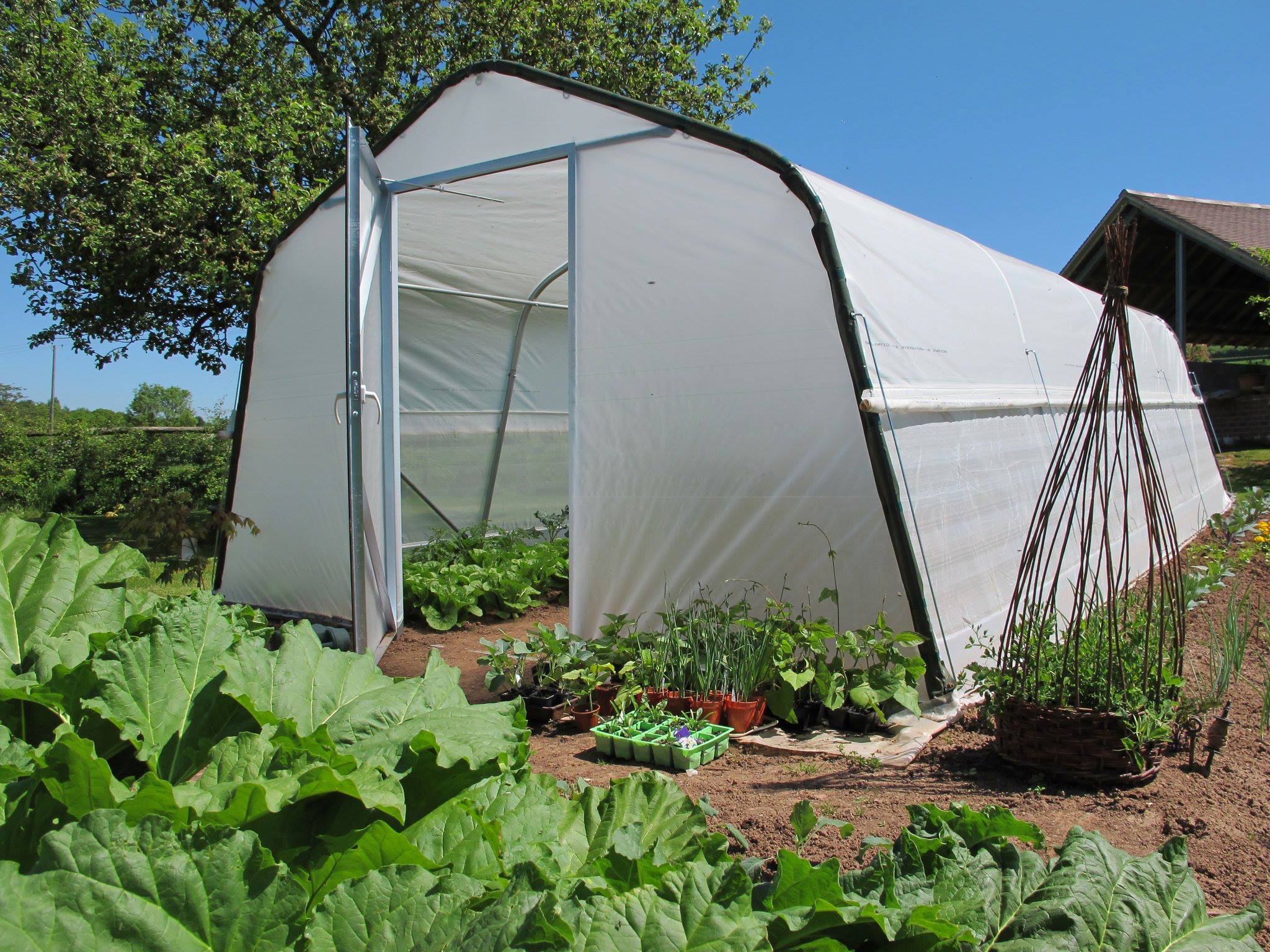You can grow a lot of vegetables in winter in a polytunnel, particularly crops that will benefit from the additional warmth and protection. In the UK, the weather can be very temperamental, making Garden Tunnels all the more useful for controlling climate and ensuring you get a good harvest. Normally, a polytunnel will extend your growing season by at least a few months, meaning you’ll have better quality produce and more of it as well as saving money!
To be pragmatic about polytunnel space, it’s best to choose crops that will thrive under the protected cover and would otherwise not do as well outside.
Growing winter vegetables
You can plant vegetables during winter, allowing you to get a head start for spring. Due to the cold temperatures and potential for harsh winters, there are only certain hardy crops you can grow during this season.
Growing Brussels Sprouts
Brussels sprouts are a slow-growing, long-season hardy vegetable most popular at Christmas time. Sprouts actually taste better when exposed to a little frost, so it’s best to sow the seeds in your polytunnel and then transplant them outside. By staggering the planting dates, sprouts can be harvested for a long period from September to February. You should sow them around mid-march to early April and no later than early May. They can then be transplanted 4 weeks later.
When you sow the seeds, you should space them thinly, around 1-1.5cm deep. After sowing, they can take up to 4 months to reach full maturity, it will generally be between 80-120 days until they’re ready to harvest.
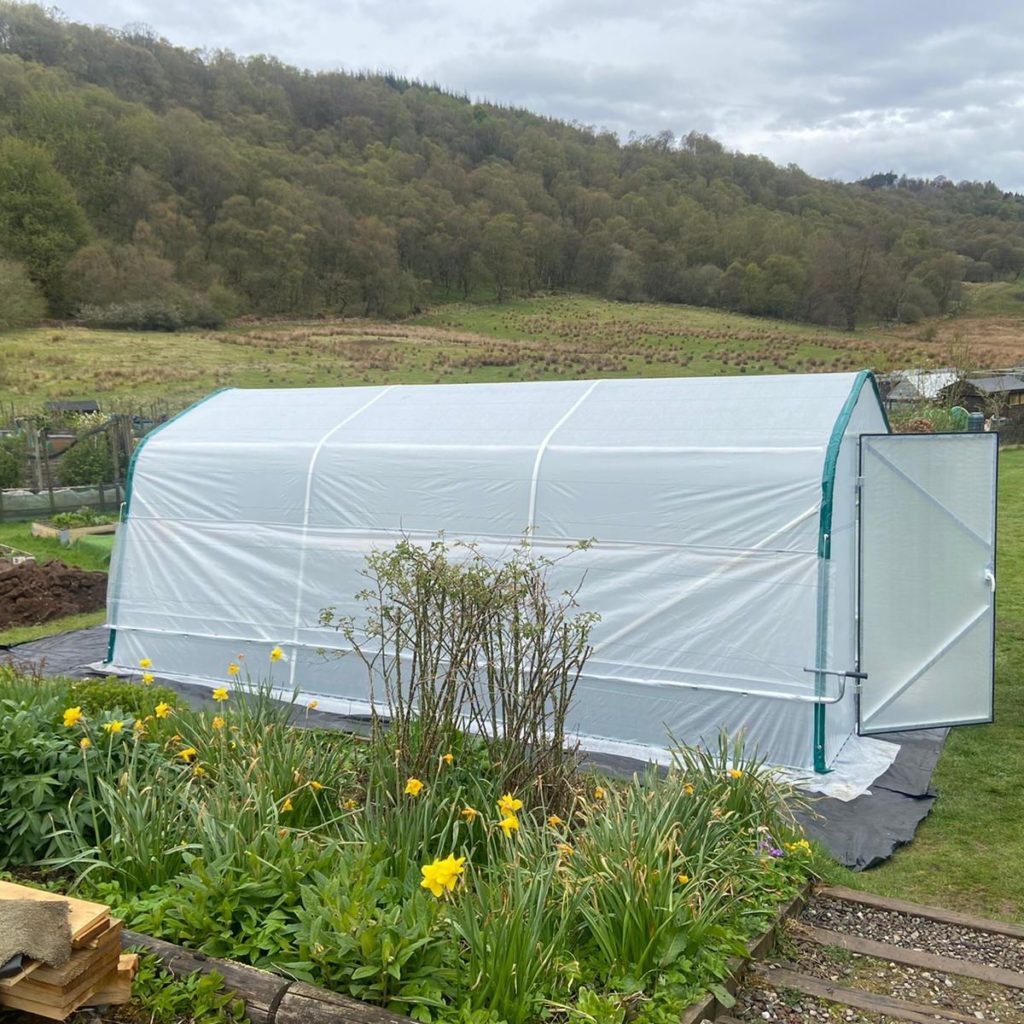
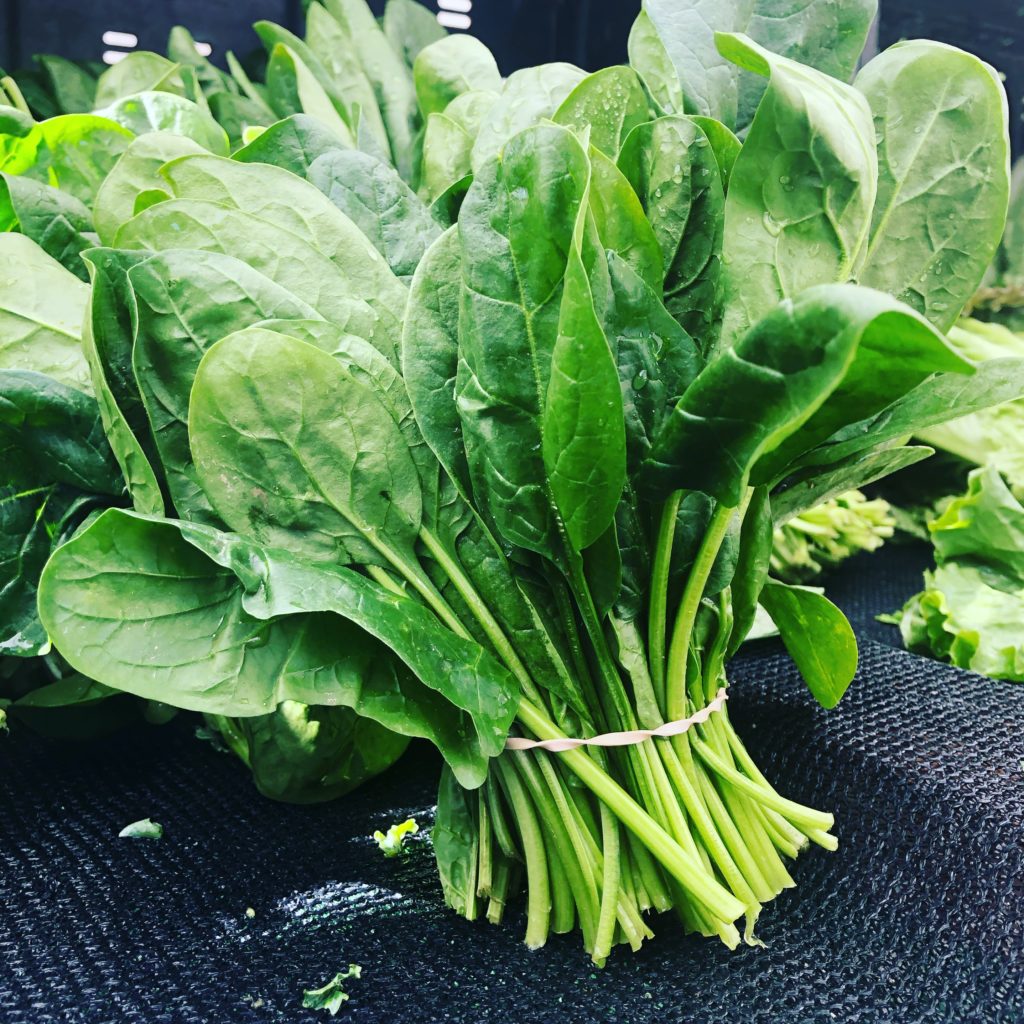
Growing spinach
Spinach is a great wintergreen as it tolerates colder climates. You should try to plant them as early on in autumn as possible. This will ensure that the plants meet maturity before November and that the outer leaves can be harvested during November/ December. Spinach will only tolerate winter weather if you sow the seeds early enough for the plants to establish roots.
You could use a horticultural fleece overnight to add another layer of warmth on colder nights. To keep the roots warmer you can add mulch around the base of the plant.
Growing potatoes
Your polytunnel can extend the potato growing season into the depths of winter. To have potatoes that are ready for Christmas Day, you should sow them in August. In order to save space in your Garden Tunnel, you could plant in sacks or containers. Again, you can cover them with straw and mulch to retain some heat.
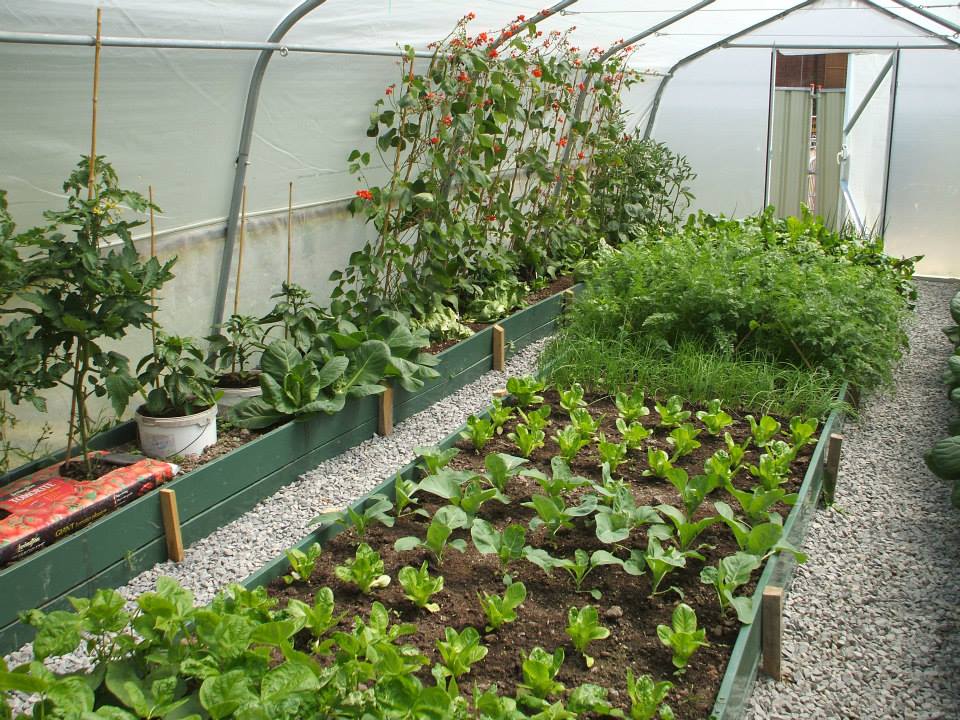
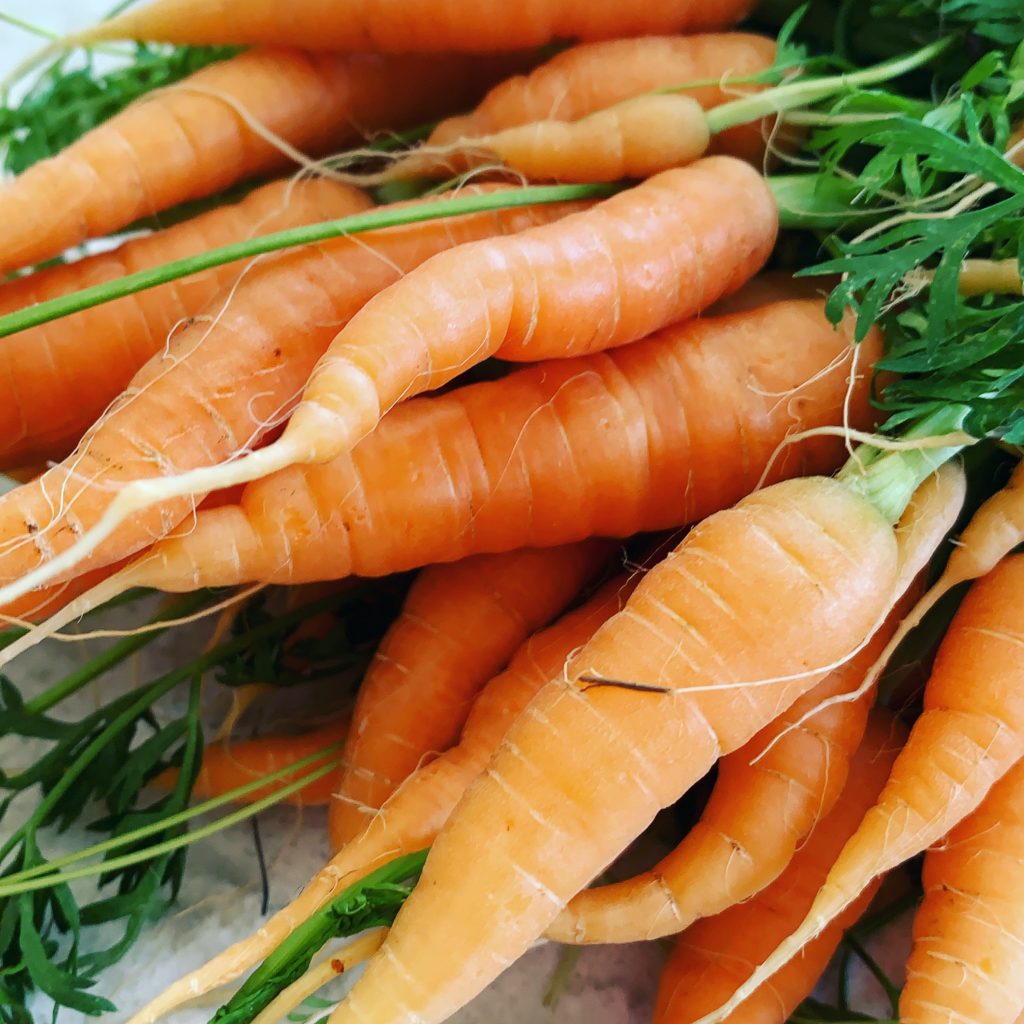
Growing carrots
Another great choice for polytunnel winter growing is carrots. You should plant winter carrots about 12 weeks before the first frost to ensure they are mature. Carrots won’t grow in cold temperatures, but they will continue to stay fresh. Carrots can even taste better after a few touches of frost because sugar accumulates in the roots. For more advice on how to raise a thriving garden, take a look at our other blog and learn additional gardening tips.
preparing your Garden Tunnel for winter growing
There are a few things that you should check and maintain before winter comes with its freezing temperatures.
- You should ensure that your garden polytunnel has a good seal and that any holes are securely taped up. If your polytunnel cover is old and looking worse for wear you may want to consider recovering it.
- If you think your Garden Tunnel will still be too cold you could consider heating it. You can buy heaters from your local garden center.
- To protect your plants from frost you should buy horticultural fleece or mini polytunnels, which both help to retain the heat.
There are many other vegetables that do well in a polytunnel over winter, just make sure that they are either hardy or overwinter well (if you don’t plan on heating your tunnel).
If you are after more advice about Garden Tunnel care or other general questions then don’t hesitate to contact our experts.

